
James O'Brien 10am - 1pm
7 December 2022, 14:23 | Updated: 28 November 2023, 10:29
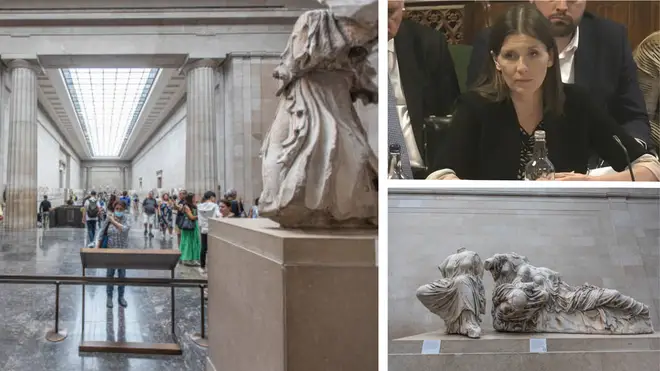
The British Museum giving back the Elgin Marbles to Greece would be the start of a "dangerous and slippery road", culture secretary Michelle Donelan has said, as she poured cold water on discussions about the return of the ancient artefacts.
Ms Donelan said that if the 2,500-year-old Elgin Marbles were sent back to their country of origin, it could spark a wave of other artefacts held in British institutions being returned.
It comes after reports emerged of British Museum chairman George Osborne holding meetings with the Greek Prime Minister over possibly giving back the marbles.
The British Museum is legally not allowed to give back artefacts in its collection.
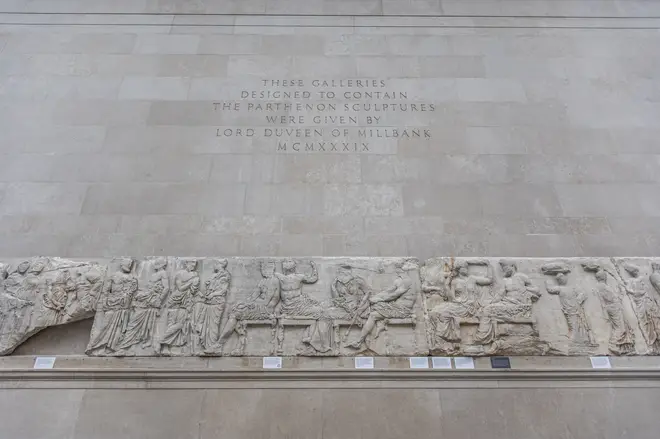
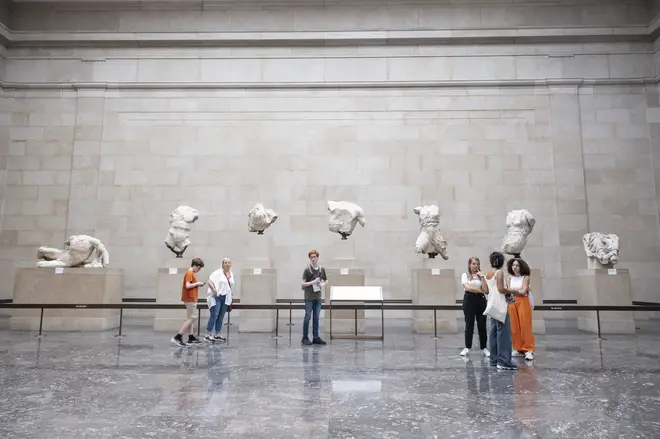
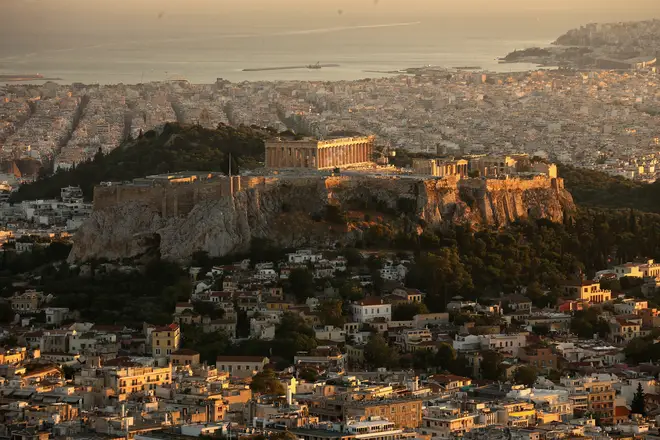
Ms Donelan told MPs on Wednesday: "I think George Osborne's position is a little bit different to how it has been portrayed.
"But there are some people that are strongly advocating to return some of these items permanently. The current law does not allow that, it should be acknowledged.
"I can completely understand the position that they are taking and I can sympathise with some of the argument. But I do think that is a very dangerous and slippy road to embark down."
Speaking to the House of Commons' Digital, Culture, Media and Sport Committee on Wednesday, Ms Donelan added that Britain had "taken great care" over artefacts like the Elgin Marbles, also known as the Parthenon Marbles.

She said: "Once you start giving one back, where does that end?'It's also very difficult to know who to give these things back to. We're talking about very ancient items in many respects.
"There are certain examples where it is not clear over exactly who the owners are. And others where I would argue it is more clear that we have a direct link to ownership.
"But, certainly, I think the current status quo is working and we should protect it."
The Elgin Marbles are named after the British lord who removed them from the Parthenon temple in Athens in the 19th century - and have been the subject of controversy ever since they were taken.
The Greek government has pushed for the UK to return them from the British Museum, where they have been on display for about 200 years.

An opinion poll this year found that some 40% of British people were in favour of returning the marbles to Greece, while 16% wanted to keep them in the UK.
Mr Osborne, who is also former Tory chancellor, said that there was a "deal to be done".
He suggested to LBC earlier this year that the deal could see some of the marbles in Greece for part of the year.
Mr Osborne and Greek PM Kyriakos Mitsotakis met at a hotel in London last week to discuss the Elgin Marbles, according to a Greek newspaper.
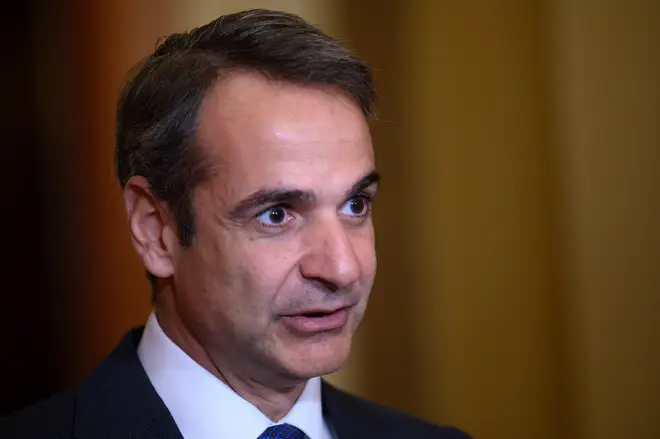
The Prime Minister's official spokesman said: "We have no plans to change the law, which prevents removing objects from the British Museum's collection, apart from in certain circumstances.
"Our position on this hasn't changed. Decisions relating to the care and management of the collections are a matter for the Museum and its trustees.
"The Parthenon Sculptures are legally owned by the trustees and operationally independent of the Government."
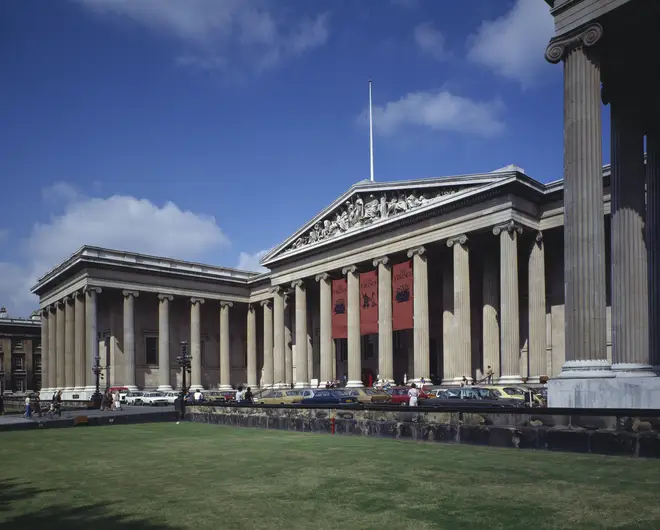
A spokesperson for the British Museum said: "The British Museum has publicly called for a new Parthenon partnership with Greece and we’ll talk to anyone, including the Greek government, about how to take that forward.
"As the chair of trustees said last month, we operate within the law and we’re not going to dismantle our great collection as it tells a unique story of our common humanity.
"But we are seeking new positive, long-term partnerships with countries and communities around the world, and that of course includes Greece."

George Osborne doesn't rule out Elgin Marbles will return to Greece
It comes after the Horniman Museum in Forest Hill, south-east London, began the process of giving its collection of Benin Bronzes to the government of Nigeria.
The museum's 72 bronzes were taken by force from Benin City, in what is today Nigeria, in 1897.
The director of the museum, which handed back the bronzes to the Nigerian government in November, said it was "a moral and appropriate" gesture.